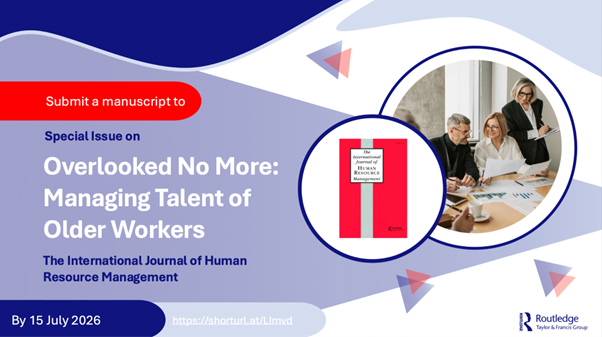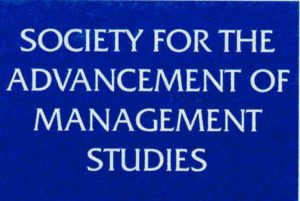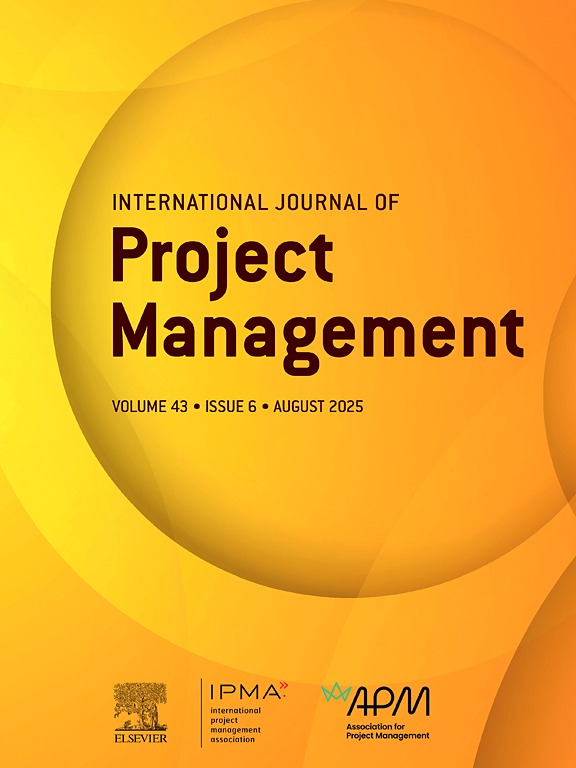
Sinergie-SIMA 2026 Conference
TRANSFORMING MANAGEMENT IN THE ERA OF POST-GLOBALIZATION AND AGENTIC ECONOMY
May 28th and 29th, 2026
University of Pavia - Italy
Dear Friends,
The management discipline is in transition: we are arranging the Sinergie-SIMA 2026 Management Conference to offer a vibrant platform for discussing how our field is playing a central role in transforming organizations and society, as well as to reflect on the extent to which management itself must evolve. The Conference will take place in Pavia, a historic university town with a medieval soul, the ideal environment for fostering knowledge exchange and networking. The conference format has been carefully designed to leverage the potential of our research and innovation ecosystem, while ensuring a high-quality experience for all participants. The program will feature plenary sessions with renowned keynote speakers and cross-views from academia and practitioners, alongside parallel sessions and special tracks promoted by SIMA’s Thematic Groups. For the first time, the Conference will also host an exhibition of research centers. We believe this edition will provide an extraordinary opportunity to reflect collectively on the challenges and opportunities emerging in an era of accelerated technological and managerial change.
We look forward to welcoming you to Pavia for the 2026 Sinergie-SIMA Management Conference.
Stefano Denicolai and Antonella Zucchella
University of Pavia
Beatrice Luceri
SIMA and University of Parma
Marta Ugolini
Sinergie and University of Verona
THE SINERGIE-SIMA MANAGEMENT CONFERENCE: OVERVIEW
Sinergie and SIMA share a common mission: advancing Italian scholarship in international management research. Since 2016, these organizations have collaborated to host an annual conference that combines Sinergie's three decades of experience with SIMA's extensive academic network. This established scientific meeting creates a collaborative environment where management scholars present and discuss their research.
The conference runs May 28-29, 2026, with pre-conference activities on May 27. Plenary
sessions feature renowned academics and industry professionals as keynote speakers, discussants, and interviewees addressing the main conference theme.
Parallel sessions showcase long and short papers selected through rigorous peer review.
Participants present their research and engage in constructive discussions with session chairs and fellow attendees.
While English is the official language, Italian submissions are welcome.
IFSAM: Business and management scholarship for social good
SAVE THE DATE December 2 nd , 2025 11AM-12.50PM CET
The International Federation of Scholarly Associations of Management are delighted to invite all of
our members to join us for an International Forum webinar on December 2 nd , 2025, 11am-12.50pm
CET. The webinar will take place via zoom (joining details to follow soon).
Our theme, Business and management scholarship for social good encourages IFSAM members to
contemplate the business school as a propellant of social mobility. Through panel discussions and a
‘Q&A’ session with participants, we will invite critical reflection on the ways in which we can
work towards this goal through our research, teaching and scholarship.
In recognition of IFSAM’s 35th anniversary we will also introduce a specially curated ‘IFSAM
35th Anniversary Memory Booklet’ to mark the occasion.
International Journal of Public Sector Management (IJPSM) - Call for 4 Associate Editors
Responsibilities The Associate Editors will be expected to assume the following responsibilities:
Managing manuscript peer review through an online submission system within a reasonable timeframe
Making recommendations on manuscripts to the Editor, ensuring the quality of accepted papers
Promoting the journal at conferences and through web channels, and by encouraging and inviting relevant manuscript submissions
Making suggestions on themed special issues of the journal on relevant topics
Contributing in any other ways to the journal’s further development
Any other tasks assigned by the Editor.
Qualifications
The ideal candidates will be expected to satisfy the following criteria:
- Hold a PhD degree in an appropriate discipline
- Have prior experience as a peer reviewer or member of the Editorial Board of an international research journal
- Have published in international peer-reviewed research journals
- Be able to provide impartial judgement on other researchers’ work
- Be fluent in English with good writing ability.
Benefits of the Role
The role includes a small honorarium. Additional benefits of the role include:
- Full training and support in the ScholarOne submission and peer review system.
- Complimentary access to the journal
- Your name listed within each issue of the journal and on the journal website
Early access to new research, helping you keep abreast of developments in the field - The opportunity to network with colleagues and peers (editors or board members) and to influence the journal's future development.
Term of Service
The successful candidates are expected to serve in the role of Associate Editor for an initial 1 year-period. The role includes an honorarium.
Applications
Interested candidates are invited to send a letter of up to 1,000 words summarising their qualifications relative to the criteria stated above, together with an up-to-date CV, to the journal’s Commissioning Editor, Hazel Goodes (hgoodes@emerald.com) by October 31st 2025.

Call for Papers on Managing Talent of Older Workers
Special Issue of The International Journal of Human Resource Management
The aging of the global workforce presents both challenges and opportunities for organizations and societies. While older workers bring advanced expertise, strategic insight, and mentoring potential, they are often overlooked in talent management strategies. This Special Issue encourages fresh perspectives on how organizations can attract, develop, and retain talented older professionals.
We welcome qualitative, quantitative, mixed-method, conceptual, and review papers. Contributions that highlight international diversity, cross-cultural differences, or Global North–Global South comparisons are particularly encouraged.
We suggest two broad themes for submissions:
- Inclusive talent management strategies – exploring barriers to leveraging older workers’ talents and identifying effective mitigation strategies.
- Tailored approaches for older professionals – focusing on attraction, development, and retention practices adapted to their needs.
Possible topics include (but are not limited to):
- Barriers to leveraging the full potential of older talent
- Effective talent management strategies to counter age discrimination
- Differences in work values, needs, and career aspirations across the lifespan
- Optimal training, reskilling, and upskilling approaches for older workers
Submission window: June 17 – July 15, 2026
Submit here
For questions: Ksenia Usanova (ksenia.usanova@ucd.ie); Foteini Kravariti (foteini.kravariti@port.ac.uk); Vlad Vaiman (vvaiman@callutheran.edu)

Developing The Management Studies Community: Call For Funding Applications
SAMS (The Society for the Advancement of Management Studies) invites applications for funding to support events or activities that benefit the global management studies community.
Deadline for applications is 16.00 GMT on Friday, 7th November 2025.
Please email applications to Margaret Turner (business.sams@durham.ac.uk). Applications received after the closing date cannot be considered until the next round.
SAMS normally expects to fund to a maximum of £10,000, but most awards are significantly less than this, therefore it is expected that there should be other sources of support. Examples of previous funding recipients can be found here.
Priority will be given to proposals that contribute to the development of doctoral students and/or early career academics. Applications for repeat funding will be considered in exceptional cases only.
The funds are for the organisation of WORKSHOPS AND EVENTS ONLY. The funds are NOT to fund the following:
- Research Projects or individual pieces of research;
- Travel to an existing conference (e.g. AOM) even if for the purpose of holding an event there;
- Creation of websites or technical hardware;
- Staff costs or salaries in any form, including fees or honoraria for speakers or instructors;
- Events or workshops that are already funded wholly or in part by SAMS or JMS.
When completing the application form, please make clear how SAMS’ funds will be used and how they will result in demonstrable benefits to management studies’ diverse community.
The application form can be found here: SAMS Funding Application Form November 2025
Informal enquiries are welcome to Margaret Turner: business.sams@durham.ac.uk

Call for papers: Towards Stronger Theorising of Temporary Organising
Extant scholarship in project studies is calling for fertilizing across disciplines to pave the way to stronger theorizing. This essay responds to this call by spurring a debate on how to theorize temporary organizing in new and creative ways — both broadly and with a particular focus on projects, arguably the most prevalent form of such organizing.
Submission deadline: 30 March 2026
International Journal of Project Management
The aim of this special collection is to provide a platform for researchers to reflect and advance different pathways towards the twin disciplinary aspirations of not only (a) fostering true cross-fertilisation with related disciplines (Locatelli et al., 2023) but also (b) addressing pressing societal challenges (Geraldi et al., 2025; Ika & Munro, 2022; Unterhitzenberger, McKiernan, et al., 2024). Research on managing projects and other forms of temporary organising, not unlike the broader literature on management and organisation, recognises the need for rigorous research and advance theorising as a means towards both cross-fertilisation and achieving the impact of scholarly work beyond academia. For example, Geraldi et al. (2020, p. 351) suggest a mutually-constitutive relationship between theorising projects and cross-fertilisation with related disciplines such as organisation studies. Similarly, the broader literature suggests that a true cross-fertilisation constitute a two-way scholarly exchange—ranging from leveraging reference theories from related fields to developing home-grown theories grounded in empirical research that potentially enrich other disciplines (Kjærgaard & Vendelø, 2015). Advancing theory is also seen ‘as a meaningful way to impact’ in the broader scholarly conversations (Reinecke et al., 2022, p. 1)—a message that reverberates with the project management scholarship which suggests that ‘rigorous research’ is essential for societal impact (Unterhitzenberger, McKiernan, et al., 2024, p. 3). To provide impetus to this scholarly discourse, this special collection aims to draw the attention of project management scholars towards new and creative ways to theorise temporary organising for scholarly impact— ‘the ability to provide a clear, compelling, and meaningful theoretical contribution’ (Wickert et al., 2021, p. 299)—as necessary though obviously not sufficient condition of cross-fertilisation and practical impact.
- Extended abstracts due by August 30, 2025.
- Feedback provided to the extended abstracts by September 30, 2025.
- Virtual workshop for the authors of accepted extended abstracts in October 2025
- Submission of full papers by March 30, 2026
- Review and revision cycle: From April 2026 to April 2027
- Finalising the paper collection by May 2027
Submission: ScienceDirect website.
2026 Conference: Continuity in Family Business: Preserving Corporate Heritage and Legacy for Long-Term Success
The third edition of the International Conference is organised by Salvo Tomaselli (Unipa), Giambattista Dagnino (LUMSA), and Giorgia D'Allura on February 3 and 4, 2026, in the Aula Magna of the Department of Economics and Business at the University of Catania (Corso Italia, 55 - Catania).
This year, the conference program will again be divided into two days: the first (Tuesday, February 3, 10:00 am - 6:30 pm) will be dedicated to the scientific component, with paper presentation sessions by national and international professors; the second (Wednesday, February 4, 9:00 am - 3:00 pm) will be dedicated to businesses and, as such, will have a much more practical focus, defining and highlighting managerial best practices on the proposed topic.
Link to the event: here.
2025 Conference: Entrepreneurial Ecosystem Research School - 6th Edition
Conference Date: 3-5 December 2025 Location: IAE de Lyon, Université Lyon III Jean Moulin, France
The Entrepreneurial Ecosystem Research School (EERS) for its 6th Edition invites early-career and senior scholars, including PhD candidates, to submit abstracts for the upcoming event at IAE de Lyon, France. This event serves as a dynamic platform for emerging scholars to engage with international experts, collaborate, and further develop their research in the field of entrepreneurial ecosystems (EE).
Conference website: here.
2025 Conference: Responsible Management Education Research - 12th edition
Dates: 21 – 23 October 2025 Location: Faculty of Organizational Sciences, University of Belgrade, Serbia
We are thrilled to invite you to the 12th Responsible Management Education Research Conference organized by the PRME Anti-Poverty Working Group, hosted by the University of Belgrade – Faculty of Organizational Sciences. The 12th RMER Conference will bring together educators, experts, innovators, government representatives, and other stakeholders to explore critical issues in responsible management education, with a special focus on addressing global challenges through innovative and sustainable practices.
We kindly invite fellow educators and researchers from the PRME and responsible management education community in general, and their respective stakeholders to respond to this call and submit track proposals that correspond to and/or complement to the conference theme of Rethinking Growth and Exploring New Possibilities for a Regenerative World: Unexplored Management Research and Education Areas that Reconnect Purpose to Responsible Business and Leadership.
For more information about the Conference, please check the Conference Home Page which will be regularly updated.
Call for submissions: AMD Special Research Forum - Organizational Insights in Health Care
Submission Deadline: 31 October 2025
AMD invites submissions to a Special Research Forum on "Organizational Insights in Health Care". Health care contexts represent an incredibly valuable research domain for management scholars interested in a wide range of topics and levels of analysis. As DiBenigno and D'Aunno (2024) recently commented, health care "has it all," with prior work exploring this context from macro-, meso-, and micro-level perspectives to generate valuable insights. Given the inherently interdisciplinary nature of studying organizational phenomena in the health care setting, past work has spanned a range of disciplines, often bridging domains of organizational scholarship, industrial relations, and health care scholarship (e.g., health policy, health services research, medicine, medical sociology, and nursing), yielding key insights for theory and practice.
Guest Editors
- Marlys Christianson, University of Toronto
- Brian Hilligoss, University of Arizona
- Christopher Myers, Johns Hopkins University (AMD Associate Editor)
- Kathleen Sutcliffe, Johns Hopkins University
- Timothy Vogus, Vanderbilt University
Call for Papers: aom.org/events/event-detail/2025/10/01/calls/...
AMD invites submissions to a Special Research Forum on "Organizational Insights in Health Care". Health care contexts represent an incredibly valuable research domain for management scholars interested in a wide range of topics and levels of analysis. As DiBenigno and D'Aunno (2024) recently commented, health care "has it all," with prior work exploring this context from macro-, meso-, and micro-level perspectives to generate valuable insights. Given the inherently interdisciplinary nature of studying organizational phenomena in the health care setting, past work has spanned a range of disciplines, often bridging domains of organizational scholarship, industrial relations, and health care scholarship (e.g., health policy, health services research, medicine, medical sociology, and nursing), yielding key insights for theory and practice.
The goals of this special issue are to publish novel empirical explorations while taking seriously the invitation to balance organizational science and health care – in other words, work that takes seriously both the charge to develop a richly contextualized understanding of a key empirical discovery and develop its implications for a more generalized understanding of work, strategy, organizations, management, and institutions. These goals are particularly well-suited to the nature of AMD as an outlet for "articles motivated by research questions that address compelling and underexplored phenomena … that present clear and compelling discoveries: empirical findings that challenge existing assumptions while opening new theoretical paths or that otherwise promote future, 'down-the-road,' theorizing." (AMD website)
We invite papers that study any organizational phenomena relevant to the experience and functioning of health care (broadly defined) for this special issue. This could include "classic" topics central to organizational scholarship that are particularly visible or impactful, but still poorly understood, in health care (i.e., many of the topics listed in Table 2 of Mayo et al., 2021). It also includes phenomena that are particular to health care settings, but might carry important implications for all organizational environments (e.g., the study of handoffs and transitions, which are central to health care delivery settings, but are increasingly occurring in many organizations that switch to project-based work coordinated across disparate teams or units; Hilligoss & Vogus, 2015; LeBaron et al., 2016). Questions about the suitability of a particular topic should be directed to a member of the editorial team.
Please see the full Call for Papers for more details: aom.org/events/event-detail/2025/10/01/calls/... (a PDF version of the Call is attached here as well).

